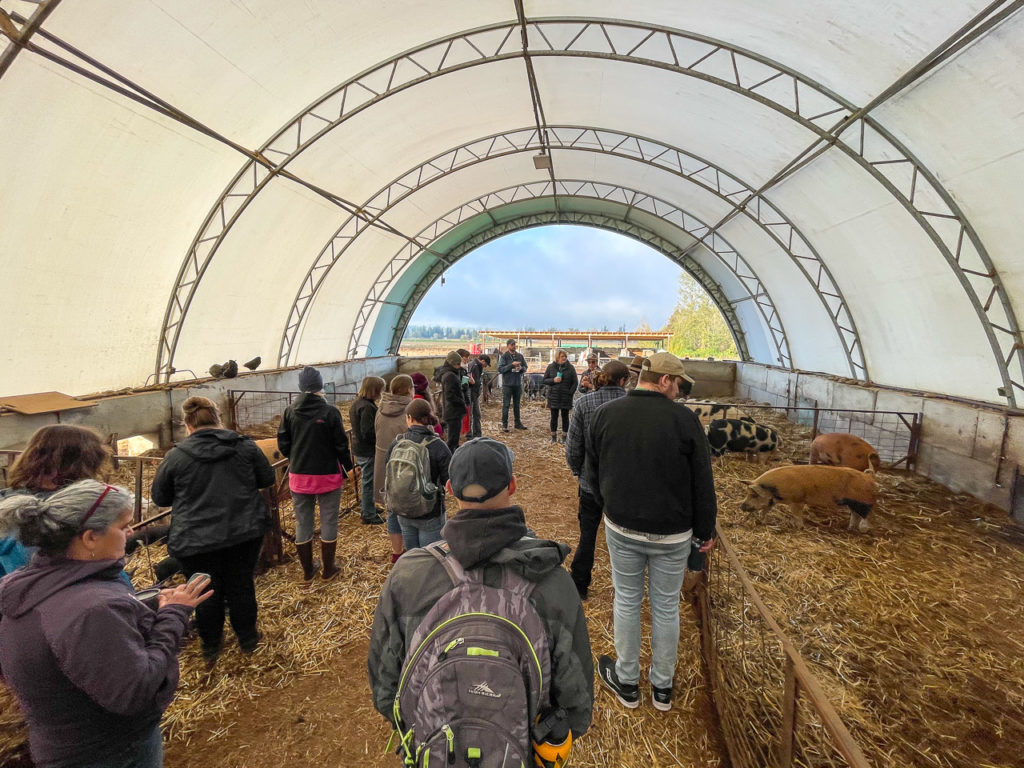On a beautiful fall morning in October, twenty-three educators joined the Teaching for the Climate Collaborative at Alluvial Farms in Whatcom County. The tour showcased local engineering solutions the farm institutes to mitigate the effects of climate change.
Teachers met these hard-working farmers who want to do well by the land they steward. Their collaborative efforts with public agencies and local CBOs help make that happen. At every step of the way, Alluvial Farms has taken on challenges as problems that can be defined, solutions tried, and solutions refined – an example of engineering at its finest!

Rather than terraforming the land to do one thing well, Alluvial Farms started by farming pigs in ways that are as protective of the land as they could find. They then expanded into viticulture, and most recently into hemp products. From their solar power facilities to their on-site composting, Alluvial Farms is keeping the nutrients in their land and restoring the land and watershed to better support native wildlife. Educators got to witness engineering at its finest at a very local level to solve the problems of land protection and community sustenance.
In addition to learning about current engineering solutions, teachers heard how local tribes engaged in design solutions since time immemorial. They were treated to stories as well as demonstrations by local tribal members of the Lummi and Nooksack Nations as well as Northwest Indian College Faculty. Learning about sustainable solutions that have always been eco-centric, educators were able to envision a different future – one that is just and upholds treaty rights.
After a tasting of the farm’s local bounty, teachers got into the work of how to bring all the learning of the day back into the classroom. Working with the NGSS Engineering and Technology standards teachers gathered in grade bands to discuss how to implement solution-driven design with their students.
Teachers left with a feeling of hope as indicated in the remarks in their surveys:
“So inspiring!”
“I felt more positive, more aware of the influence I have to help my students.”
“I found ways for students to connect to local ideas.”
This field trip was focused on land and agriculture, the first of a four-workshop series called ClimeTime: Hope & Resilience. To learn more about and register for future professional development workshops for educators in the series and additional ClimeTime offerings, visit our professional development page.
The Hope & Resilience ClimeTime series was developed and offered by the Teaching for the Climate Collaborative, which includes:







